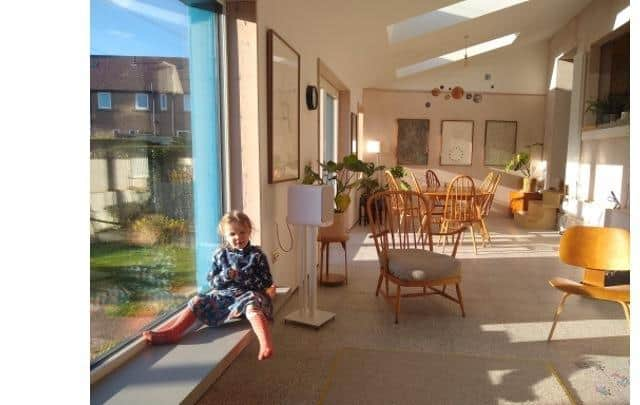Future proofing Scottish homes to reach net zero
Currently it is estimated that 89 per cent of homes in Scotland still rely on fossil fuels, and the wholesale change of our heating and water systems over to renewable energy - to comply with net zero targets will be a massive task.
Retrofitting new technologies to existing properties will also involve adding insulation and while grants and loans are available to encourage the switch, it can be a serious investment and thus far, the rate of take-up is slow.
The podcast, made in partnership with DJ Alexander, looks at the progress being made and how individual owners can make their contribution.


The first guest joining podcast presenter, Kirsty McLuckie, The Scotsman’s property editor, is Sarah Lewis, the Research Policy and Education Director of the UK Passivhaus Trust.
Sarah and her architect husband have embarked on an ambitious project to convert their own ex-local authority 1950s terraced house in North Berwick to close to net-zero energy and in the podcast she takes us through the stages required to ensure maximum insulation while maintaining a healthy home.
As she explains, making a house cosy isn’t the whole story, as in an airtight space the circulation of fresh air is key to the wellbeing of the occupants.
Meanwhile guest Jocelyn Fleming, the Policy and Public Affairs Officer for the Chartered Institute of Building in Scotland, talks us through recent research into the progress of improving energy efficiency across the whole of the nation's housing stock.


The analysis of the data suggests that initial costs of converting to renewable energy sources, which can run into the tens of thousands, is not the only barrier to more people adopting the technology.
Scotland’s rented homes are already held to a higher energy standard than the rest of the UK, requiring and Energy Performance Certificate rating of D or above, compared to E in England and Wales.
The UK Government has recently reversed plans to legislate on improvements across the board, but the Scottish Government is currently consulting on a new bill which could raise the legal minimum standards further.
The podcast’s third guest, Richard Tierney, Director of Customer Services for DJ Alexander, looks ahead to what that could mean for Scotland’s landlords and how it will affect the market - and private tenants.